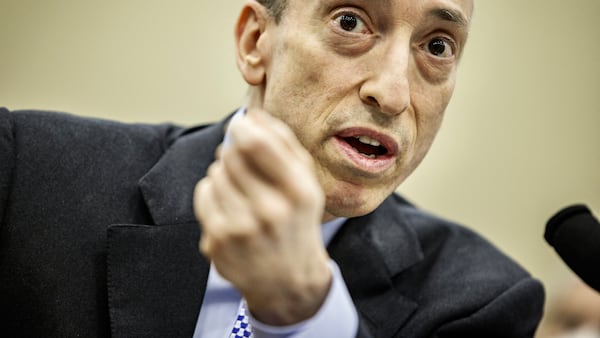- The US high court will hear cases involving herring fishing today.
- These cases could overturn regulators’ crackdown on companies like Coinbase and Binance.
Two cases involving herring fishing will be heard in the Supreme Court today — and the outcome could transform the crypto industry in the US.
Yes, you read that right.
The cases are complex, involve technical questions about administrative law, and on the face of it have nothing to do with crypto.
But they’re worth paying attention to.
Why? Because These fishing industry cases could see the US Supreme Court overturn a precedent that for 40 years has seen courts defer to regulators’ expertise on tricky legal questions about the industries they oversee.
“This is the most important case in decades for commerce in this country, the relationship between business and the government, and the relative balance of the legislative and executive branches,” Miller Whitehouse Levine, CEO of DeFi Education Fund, told DL News.
‘This is the most important case in decades for commerce in this country.’
— Miller Whitehouse Levine
Without that precedent — known as Chevron deference — judges would get the last word on issues where the law isn’t clear.
And that would be a boon for crypto litigators chafing under the thumb of the US Securities and Exchange Commission.
Fishing for answers
To understand this, we must briefly return to the cases in the Supreme Court.
It all began when two companies fishing for herring off the coast of New England — Loper Bright and Relentless — challenged regulation over a federal agency’s monitoring programme.
District courts sided with the fishing regulator, citing the Chevron doctrine.
That’s not unusual — Chevron is one of the most foundational precedents in US law.
Loper Bright and Relentless appealed the rulings, and the cases wound up in the Supreme Court.
But the Supreme Court agreed to address only one question — whether it should overrule the lower courts’ deference to the regulator.
The court could end up limiting Chevron — or even overturning it altogether, Levine said.
Regulatory wrecking ball
Critics say this case is not about fisheries management, but leveraged by conservatives to take a legal wrecking ball to the power of regulatory agencies.
Doing away with Chevron would undermine regulators’ ability to rein in corporate greed and shift power to the increasingly right-wing Supreme Court, progressive critics say.
They point to how the fishing companies are backed by conservative groups — including petrochemicals billionaire Charles Koch — many of whose stated ambition is to scrap Chevron.
Crypto litigators, at any rate, would celebrate if Chevron deference was overturned as a curb on the power of the SEC.
The more conservative Supreme Court justices — whose ties to corporate interests are increasingly being questioned — have shown themselves willing to fulfil that ambition.
These justices have seized on a much newer doctrine called major questions as one weapon in their arsenal against Chevron deference.
Major questions essentially allows courts to override agencies.
It has been cited in Supreme Court cases striking down greenhouse gas emission limitations and President Joe Biden’s proposed student debt relief programme.
Reining in the SEC
Crypto litigators, at any rate, would celebrate if Chevron deference was overturned as a curb on the power of the SEC.
In the absence of crypto-specific laws, the SEC has asserted that crypto falls under its authority and sued major players — including Coinbase, Binance, and Kraken — for securities law violations.
These companies’ lawyers have cottoned on to the Supreme Court’s major questions idea, citing it in arguments that push back on the enforcement actions.
Coinbase, for instance, goes toe to toe with the SEC today, arguing that a federal judge should throw out its lawsuit.
Coinbase will cite major questions in its arguments, saying that Congress is the appropriate vehicle to make rules for the crypto industry, and the SEC is overstepping.
Nightmare for courts
Progressive critics warn that challenges to Chevron deference represent a democratic nightmare.
Lower court judges, who are supposed to be impartial, would be empowered to make decisions based on personal political beliefs.
Activists say that could spell the end of consumer and environmental protections, as courts cave to business interests.
For the crypto industry, the more urgent issue is whether courts will accept their major questions argument.
So far, the answer is mostly no.
Terraform Labs cited major questions in asking a judge last year to throw out its lawsuit with the SEC.
Judge Jed Rakoff rejected it, saying major questions only applies to significant parts of the economy, which crypto is not.
The SEC itself has argued that major questions applies to conflicts between the legislative and executive branches of government, not between regulators and industry.
Major questions will be further tested in court as the SEC’s multiple lawsuits with the industry move ahead.
Reach out to the author at joanna@dlnews.com







